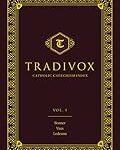The one who sows the good seed is the Son of Man; the field is the world, and the good seed are the children of the kingdom (Mt. 13:37-38).
Our Lord spoke in parables to fulfill what had been spoken through the Prophet Isaiah: I will open my mouth to speak in parables; I will proclaim what has been hidden from the foundation of the world (Cf. Is. 78:2). The saving wisdom that Our Lord communicates cannot be grasped by those who refuse to be informed by the revelation of God; those who refuse to humble themselves to receive God’s wisdom. Though we have just heard a number of parables, the one that Our Lord explains – the parable of the sower provides us with a logic that enables us to understand the world, and our place in it.
The field is the world… And the good seed are the children of the kingdom. Yet, the weeds are the children of the evil one, and the enemy who sowed them is the devil; the harvest is the end of the age, and the reapers are Angels (Mt. 13:38-39).
With these words Our Lord addresses the question of evil, a universal question. Our tradition often speaks of the mystery of iniquity (mysterium iniquitatis). Those who grapple with evil in the world or more specifically, with evil in their own lives will often pose this question: How could a loving God allow such evil to exist? Such a question could be described as Divine Providence and the existence of sin. We call ‘divine providence’ the dispositions by which God guides His creation towards its ultimate perfection (Cf. Catechism of the Catholic Church, 302).
When this question is personal, intimately so, the question is no longer theoretical but existential: How could God allow me to suffer like this? I did nothing to deserve this. Why me? These questions pose the connection between Divine Providence and the sins of other people who enter our lives and cause us great anguish and even agony. One cannot pose these questions however outside of a consideration of the reality of original sin, a reality that many deny, though its effects are in evidence all around us. It is impossible for us to exaggerate the importance of original sin in human history. The fall of our first parents occasioned the coming of God in human form to suffer and to die for the redemption of a sinful world. The sin of our first parents was the providential foundation for the Incarnation. God became man because man had sinned. Sin then, must have a most important place in the Providence of God. As Christians, we believe that when our first parents disobeyed God, they not only lost God’s friendship, but also the gift of integrity – the perfection and harmony of all of our powers. And both losses they passed on to all their posterity, on us, poor banished children of Eve.
When we come into the world we are deprived of sanctifying grace or friendship with God and we are deprived of the precious gift of the perfect control of our desires. Baptism does indeed restore sanctifying grace but it does not restore the gift of integrity. As a consequence, we all struggle with sinful tendencies. We are, sadly, naturally proud, lustful, greedy, impatient, envious and naturally lazy. We call these sinful tendencies not because of themselves they are sins but because they come from sin; the sin of our first parents, and they lead to sin. These are the weeds in our life that we need to eradicate, with the help of God’s grace. These sinful tendencies that are so embarrassingly part of our fallen human nature however, are also part of God’s Providence; for in our interior struggles, aided by the supernatural sanctifying grace of God, we become humble and gentle generous and patient, pure of heart. Our struggles become blessed opportunities for growing in God’s merciful love.
Yes, God wants us to benefit from the mysterious providential purpose He has in having allowed us to sin; for where sin abounds grace abounds all the more (Rom. 5:20). Faith allows us to say that God has permitted us to offend Him so that we might be more generous in the future than, humanly speaking, we might have been had we not sinned. Those who have an extraordinary awareness of God’s goodness, also have a deep desire to love Him and grow in loving Him, and to share this love with others. Our experiential knowledge of God’s mercy in our struggles enables us to comfort those who are in any affliction, with the comfort with which we ourselves are comforted by God (2 Cor. 1:4).
An enemy came and sowed weeds among the wheat, and then went away (Mt. 13:25). This could be said of other people’s sins that in some way touch our own lives. Sometimes in ways that are very personal and perhaps known only to ourselves, we suffer the effects of other people’s sins. How, we ask, do these serve a divinely ordained purpose? People’s sins can touch our lives very painfully. They can scar, damage and even seemingly ruin a life.
These are the most difficult manifestations of Divine Providence that faith urges us to use according to God’s divine plan. This is when we come face to face with the mystery of iniquity. What does God expect of us in these terribly difficult circumstances? He expects first and foremost that we pray. The Spirit helps us in our weakness…that very Spirit intercedes with sighs too deep for words…because the Spirit intercedes for the saints according to the will of God (Rom. 8:26-27).
Without the help of His grace it is impossible for us to accept and to use these most difficult manifestations of Divine Providence. In the economy of salvation our suffering, our prayers and our penance especially for those who have hurt us, enable us to be one with Our Lord in obtaining mercy and grace for those most in need of God’s mercy. In moments of great suffering, unmerited suffering, our faith may seem to be weak, feeble; perhaps like a mustard seed, the smallest of all the seeds, but with the aid of God’s grace and the example, consolation and encouragement that we give one another, this feeble faith of ours can become strong and great, a source of consolation and strength for others and for all, good hope (Wis. 12:19).
May we learn from the example of the saints, especially of Saint Joseph to be attentive to the promptings of Divine Providence; to be humble and docile especially in those times of consternation that afflict us all as we wait for God to bring to fulfilment the good work that he has begun in each one of us.











